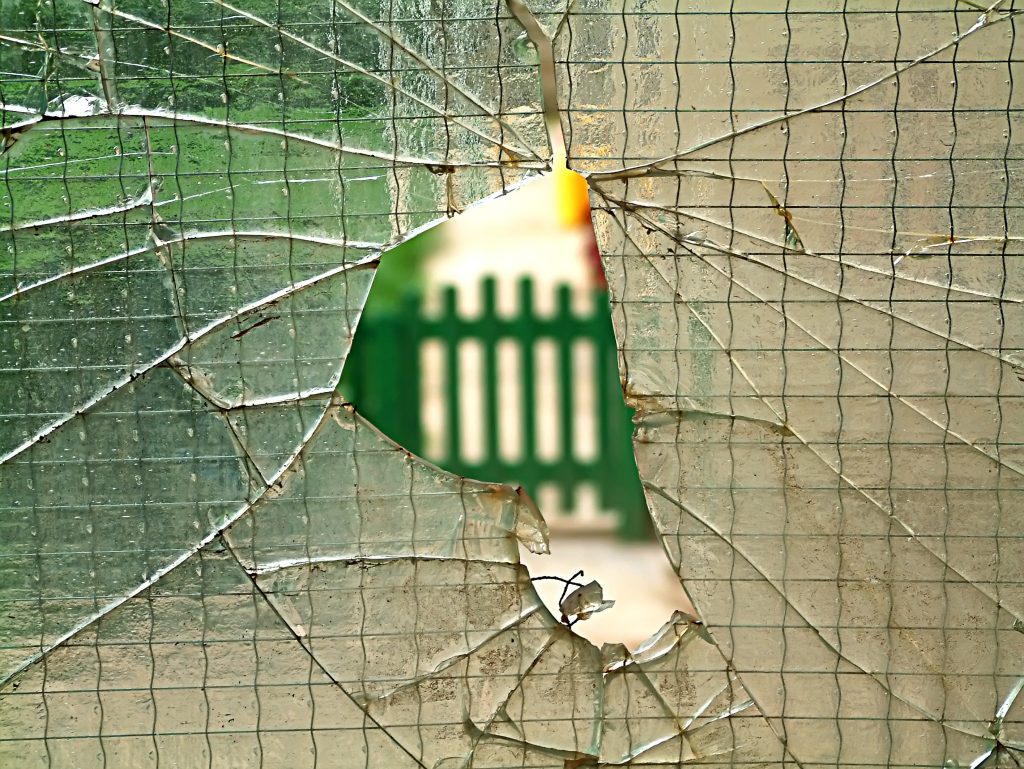 We enter into contracts all the time without putting the agreement in writing; we form contracts when we buy a cup of coffee, when we shop online, etc. Some types of contracts, however, are required by law to be in writing. Kevin and Monica Schmidt (the Schmidts) learned this the hard way when they could not enforce an oral agreement to frack oil wells in Beauregard Parish.
We enter into contracts all the time without putting the agreement in writing; we form contracts when we buy a cup of coffee, when we shop online, etc. Some types of contracts, however, are required by law to be in writing. Kevin and Monica Schmidt (the Schmidts) learned this the hard way when they could not enforce an oral agreement to frack oil wells in Beauregard Parish.
The Schmidts’ complaint alleged that they entered into an oral agreement with J-Lu Company Limited, L.L.C. (J-Lu) to fracture oil wells in which J-Lu owned an interest. Under their agreement, the Schmidts, in return for their fracking services, would split J-Lu’s interest in the wells. Thus, the split interests meant that both the Schmidts and J-Lu would share profits from the oil produced from the wells. Despite its agreement with the Schmidts, J-Lu subsequently made a deal with Will-Drill Operating Company (Will-Drill) to fracture the same oil wells.
The Schmidts subsequently filed a lawsuit to enforce their contract with J-Lu, claiming their injury was the lost profits they would be entitled to under the agreement. J-Lu filed a motion to dismiss the Schmidts’ lawsuit, and the district court granted it because Louisiana law requires a written contract when transferring interests in mineral (i.e. oil and gas) rights. La. C.C. Art. 1839; La. R.S. 31:18. The Schmidts appealed the District Court’s decision.
 Louisiana Personal Injury Lawyer Blog
Louisiana Personal Injury Lawyer Blog


 Sometimes we don’t have the best neighbors. For example, a neighbor might block access to your land, arguing that it is, in fact, the neighbor’s land you traverse on a daily basis. When such a dispute arises, get a good real estate attorney. If ingress to a piece of your property requires you to pass over someone else’s land, you might need to seek an easement. An easement is simply a right of passage through someone else’s land. This can be done in one of three ways: (1) by agreement, (2) by traditional or historic use, or (3) by necessity. In a recent case, the parties fought over the right to pass over a gravel road in Webster Parish, Louisiana. In the case, the court discusses its discretion in deciding whether an easement is necessary.
Sometimes we don’t have the best neighbors. For example, a neighbor might block access to your land, arguing that it is, in fact, the neighbor’s land you traverse on a daily basis. When such a dispute arises, get a good real estate attorney. If ingress to a piece of your property requires you to pass over someone else’s land, you might need to seek an easement. An easement is simply a right of passage through someone else’s land. This can be done in one of three ways: (1) by agreement, (2) by traditional or historic use, or (3) by necessity. In a recent case, the parties fought over the right to pass over a gravel road in Webster Parish, Louisiana. In the case, the court discusses its discretion in deciding whether an easement is necessary.  The importance of adhering to required timelines and District Court orders could not be overstated. A failure to comply with court deadlines can result not only in your claims being dismissed but also a heavy fine. Former inmates at Richwood Correctional Center (“RCC”) learned that the hard way on appeal in the Louisiana Second Circuit of Appeal.
The importance of adhering to required timelines and District Court orders could not be overstated. A failure to comply with court deadlines can result not only in your claims being dismissed but also a heavy fine. Former inmates at Richwood Correctional Center (“RCC”) learned that the hard way on appeal in the Louisiana Second Circuit of Appeal. How familiar are you with your motorist insurance policy? Are you fully covered for uninsured/underinsured motorist coverage? In Louisiana, uninsured motorist coverage protects you if you’re in an accident with an at-fault driver who doesn’t carry liability insurance. Underinsured motorist coverage, on the other hand, steps in when you’re in an accident with an at-fault driver whose liability limits are too low to cover the damage or medical expenses. Every insurance policy in Louisiana is considered to include uninsured/underinsured motorist coverage unless it is validly rejected. In a recent case, the Louisiana Fourth Circuit Court of Appeal found that an electronic signature on an online form was valid to uphold an insurance policy.
How familiar are you with your motorist insurance policy? Are you fully covered for uninsured/underinsured motorist coverage? In Louisiana, uninsured motorist coverage protects you if you’re in an accident with an at-fault driver who doesn’t carry liability insurance. Underinsured motorist coverage, on the other hand, steps in when you’re in an accident with an at-fault driver whose liability limits are too low to cover the damage or medical expenses. Every insurance policy in Louisiana is considered to include uninsured/underinsured motorist coverage unless it is validly rejected. In a recent case, the Louisiana Fourth Circuit Court of Appeal found that an electronic signature on an online form was valid to uphold an insurance policy.  A unique feature of our American federal system is the separate yet intertwined system of state and federal courts. Sometimes a dispute may begin in a state court and end up in federal court. And sometimes, there may end up being parallel proceedings in both the state and federal systems. There are limits, however. A federal court can decline to hear an action if there is a parallel proceeding in the state court system. Recently, the Fifth Circuit Court of appeal was called upon to determine whether a district court erred when it declined to hear a declaratory action and related counterclaims.
A unique feature of our American federal system is the separate yet intertwined system of state and federal courts. Sometimes a dispute may begin in a state court and end up in federal court. And sometimes, there may end up being parallel proceedings in both the state and federal systems. There are limits, however. A federal court can decline to hear an action if there is a parallel proceeding in the state court system. Recently, the Fifth Circuit Court of appeal was called upon to determine whether a district court erred when it declined to hear a declaratory action and related counterclaims. Reasonable minds could perhaps agree that “reasonableness” is a word not easily defined. What is reasonable to one person may or may not be reasonable to another. Yet, “reasonableness” is often the term used to measure the soundness of lower courts’ decisions on appeal. And in the case at hand, a “reasonable” conclusion by one person completely barred an entire personal injury lawsuit against multiple parties.
Reasonable minds could perhaps agree that “reasonableness” is a word not easily defined. What is reasonable to one person may or may not be reasonable to another. Yet, “reasonableness” is often the term used to measure the soundness of lower courts’ decisions on appeal. And in the case at hand, a “reasonable” conclusion by one person completely barred an entire personal injury lawsuit against multiple parties. When it comes to road safety, you can only rely on yourself. Know the rules of the road and always take precautions. In a recent case, a car accident dispute was brought to court to determine the liability of the parties. The case explains the responsibilities of motorists in Louisiana and why you should only rely on yourself for proper road safety and not assume that everyone else will take adequate precautions. The plaintiffs in a recent case learned this lesson the hard way.
When it comes to road safety, you can only rely on yourself. Know the rules of the road and always take precautions. In a recent case, a car accident dispute was brought to court to determine the liability of the parties. The case explains the responsibilities of motorists in Louisiana and why you should only rely on yourself for proper road safety and not assume that everyone else will take adequate precautions. The plaintiffs in a recent case learned this lesson the hard way. Filing and pursuing a lawsuit is no small task. Besides the often-significant monetary aspect, a plaintiff (the party filing the lawsuit) should be prepared for a large time commitment and effort in providing the necessary evidence to support their case. Good lawyers know how to aid their clients in gathering evidence and navigating the logistical aspects of a lawsuit as efficiently as possible. Litigation can sometimes take years, but a seasoned lawyer will know how to provide the motivation clients need to successfully pursue their claims and reach recovery. In a recent case out of Zachary Louisiana, the plaintiff filed a lawsuit he was simply not prepared to effectively maintain.
Filing and pursuing a lawsuit is no small task. Besides the often-significant monetary aspect, a plaintiff (the party filing the lawsuit) should be prepared for a large time commitment and effort in providing the necessary evidence to support their case. Good lawyers know how to aid their clients in gathering evidence and navigating the logistical aspects of a lawsuit as efficiently as possible. Litigation can sometimes take years, but a seasoned lawyer will know how to provide the motivation clients need to successfully pursue their claims and reach recovery. In a recent case out of Zachary Louisiana, the plaintiff filed a lawsuit he was simply not prepared to effectively maintain. The goal of marriage is often “happily ever after.” Sometimes, it does not end up working out that way. What happens when a child born during a marriage is the result of an affair? What legal rights does the real father have towards establishing that the child is his? The following case out of Acadia Parish demonstrates Louisiana’s jurisprudentially-created doctrine of avowal.
The goal of marriage is often “happily ever after.” Sometimes, it does not end up working out that way. What happens when a child born during a marriage is the result of an affair? What legal rights does the real father have towards establishing that the child is his? The following case out of Acadia Parish demonstrates Louisiana’s jurisprudentially-created doctrine of avowal. Sometimes even the best-planned of deals amongst parties may fall through. Parties often turn to the courts to resolve contractual disputes. When a court is interpreting a contract between two parties, it is often as simple as applying the “four corners” rule. I.e. it will not look at anything outside the four corners of the contract. This particular method of interpretation is useful (and under Louisiana law mandatory) where a contract is written clearly and is not ambiguous. In a recent case, the Louisiana Fourth Circuit Court of Appeal upheld this method of interpretation when faced with a contract dispute out of Orleans Parish.
Sometimes even the best-planned of deals amongst parties may fall through. Parties often turn to the courts to resolve contractual disputes. When a court is interpreting a contract between two parties, it is often as simple as applying the “four corners” rule. I.e. it will not look at anything outside the four corners of the contract. This particular method of interpretation is useful (and under Louisiana law mandatory) where a contract is written clearly and is not ambiguous. In a recent case, the Louisiana Fourth Circuit Court of Appeal upheld this method of interpretation when faced with a contract dispute out of Orleans Parish.